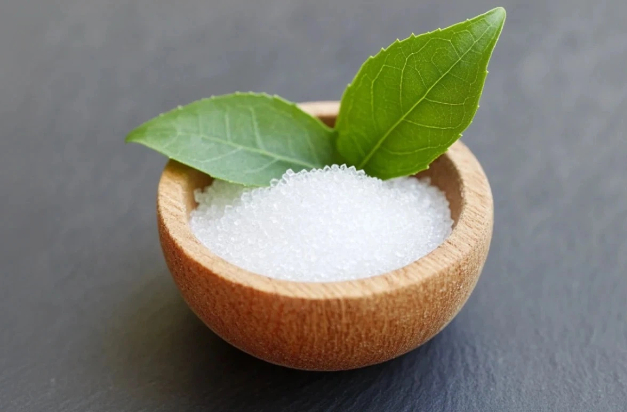Views: 222 Author: Sara Publish Time: 2025-10-16 Origin: Site








Content Menu
● Potential Downsides and Side Effects
● Stevia vs. Sugar: Which Is Healthier?
● Stevia in Cooking and Baking
● Frequently Asked Questions (FAQs)
>> 1. Can stevia cause allergic reactions?
>> 2. Is stevia safe for pregnant and breastfeeding women?
>> 3. How does stevia affect blood sugar levels?
>> 4. Are there long-term side effects of using stevia?
>> 5. Can stevia interact with medications?
Stevia is a popular natural sugar substitute extracted from the leaves of the Stevia rebaudiana plant. It is a zero-calorie sweetener, 200 to 300 times sweeter than sugar, and is widely recognized for its potential benefits and applications in food, beverage, and healthcare industries. This article provides an in-depth exploration of stevia as a sugar substitute, covering its benefits, potential downsides, nutritional facts, and its suitability compared to traditional sugar.

Stevia is derived from the leaves of the Stevia rebaudiana plant, native to South America. The sweetness of stevia comes from compounds called steviol glycosides, which are intensely sweet natural molecules. To produce stevia sweeteners, these glycosides are extracted through a process involving water steeping, filtration, treatment with activated carbon, ion exchange, and concentration into a resin. The resulting extracts are sold in powdered or liquid form, offering a concentrated sweetness many times that of sugar.
Stevia products vary: some are pure stevia extracts, while others include fillers such as maltodextrin or sugar alcohols to mimic sugar's texture and bulk in recipes. Pure stevia contains virtually no calories or carbohydrates, making it attractive for calorie-conscious consumers.
Stevia extract is calorie-free and carb-free, unlike sugar, which contains 16 calories per tablespoon. Most micronutrients in the original stevia leaves are lost during processing. Its calorie-free nature makes stevia a compelling alternative for reducing overall calorie intake without sacrificing sweetness.
Stevia offers several health benefits that have driven its popularity as a sugar substitute:
- Blood Sugar Regulation: Stevia does not raise blood glucose levels, making it suitable for people with diabetes or those monitoring their blood sugar.
- Weight Management: By replacing sugar with stevia, calorie intake decreases, which may assist weight loss or weight maintenance efforts.
- Tooth Decay Prevention: Stevia does not promote cavities, an advantage over sugar.
- Heart Health: Preliminary animal studies suggest stevia may improve cholesterol levels and reduce triglycerides, potentially lowering heart disease risks.
- Appetite Control: Some research indicates stevia may help suppress appetite and reduce overall calorie consumption.

Despite these advantages, stevia has some drawbacks and potential side effects:
- Bitter Aftertaste: Many users notice a bitter or licorice-like aftertaste, which can affect the flavor of foods and drinks.
- Gut Health Effects: Test-tube studies suggest stevia may adversely affect certain beneficial gut bacteria, potentially impacting digestive health.
- Blood Pressure: Stevia can lower blood pressure; this might be beneficial for hypertensive individuals but could pose risks for those with hypotension.
- Allergic Reactions: Though rare, people allergic to plants like ragweed or marigolds may experience allergic responses to stevia.
- Digestive Issues: When combined with erythritol (a common sugar alcohol additive), it can cause bloating, gas, or nausea in some people.
- Limited Safety Data: While purified stevia extracts are FDA-approved as safe, whole leaf stevia and crude extracts lack sufficient safety data and are not FDA-approved.
Sugar consumption is linked to obesity, diabetes, inflammation, and cardiovascular diseases. Stevia, with zero calories and no impact on blood sugar, offers a clear advantage in reducing these risks. Its glycemic index is zero compared to table sugar's high glycemic index of 65, meaning it does not spike blood sugar or insulin levels.
However, some concerns exist that intense sweeteners like stevia might increase sweet cravings or alter metabolic responses, though evidence in humans is inconclusive or mixed. The long-term health effects of frequent stevia consumption are also still being researched.
One challenge with replacing sugar fully with stevia is sugar's unique physical properties in cooking: texture, bulk, and browning reactions (Maillard reaction) that give baked goods their characteristic appearance and flavor are absent with stevia. Thus, stevia works better as a partial sugar replacement, or in combination with sugar or bulking agents, especially in baking.
Stevia is a natural, zero-calorie sweetener that can effectively reduce calorie and sugar intake, offering benefits for weight control, blood sugar management, and oral health. However, it has some drawbacks including a bitter aftertaste and possible digestive effects when combined with other sugar substitutes. While generally recognized as safe in its purified form, consumers should be aware of potential contraindications like low blood pressure and rare allergies. Overall, stevia can be a good sugar substitute if used judiciously and combined with a balanced diet.

Stevia can rarely cause allergic reactions, especially in individuals allergic to ragweed, daisies, chrysanthemums, or marigolds.
Purified stevia extracts are generally considered safe in moderation, but pregnant or breastfeeding women should consult healthcare providers before use due to limited safety data.
Stevia does not raise blood glucose levels and is suitable for people with diabetes or blood sugar concerns.
Current research and regulatory reviews indicate no evidence of toxicity, cancer risk, or organ damage from long-term use of purified stevia extracts.
Stevia may interact with medications that lower blood sugar or blood pressure, potentially enhancing their effect. It may also interfere with the elimination of lithium. Consult a healthcare professional if taking such medications.
Top Nutritional Supplement Manufacturers And Suppliers in Indonesia
Top Nutritional Supplement Manufacturers And Suppliers in India
Top Nutritional Supplement Manufacturers And Suppliers in Germany
Top Nutritional Supplement Manufacturers And Suppliers in France
Top Nutritional Supplement Manufacturers And Suppliers in Canada
